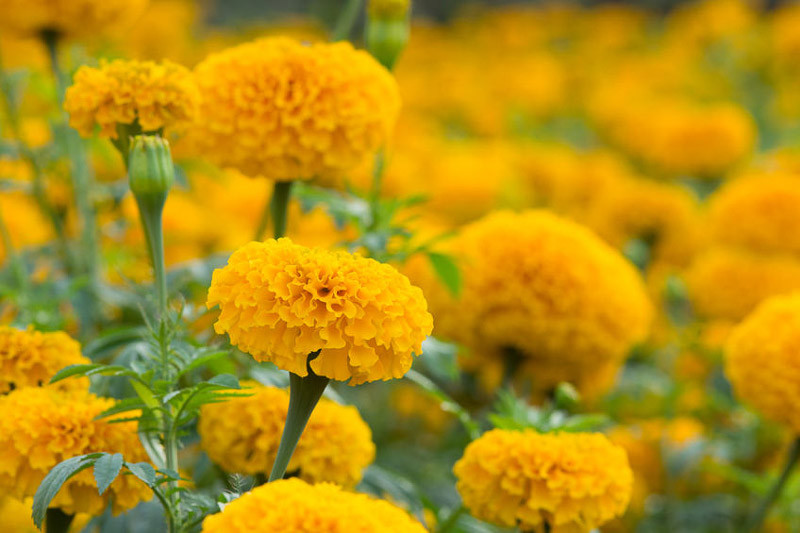African Marigold - Facts You Probably Didn't Know
The African Marigold (Tagetes erecta) is not only a garden favorite for its vivid blooms but also a plant rich in interesting and fun facts. Here are some captivating insights into this colorful and popular flower:
Misleading Name: Despite its name, the African Marigold is not native to Africa. It actually originates from Mexico and Central America. The ‘African’ label was acquired because these marigolds were brought to Europe via trade routes that passed through Africa.
Day of the Dead: In Mexican culture, African Marigolds are deeply symbolic. They are used extensively in the Day of the Dead (Día de los Muertos) celebrations as it’s believed that their bright colors and strong scent can guide the spirits of the deceased back to the world of the living.
Natural Pest Control: Gardeners often use African Marigolds as companion plants, particularly in vegetable gardens. They release a chemical from their roots that repels nematodes and other pests, thus protecting neighboring plants.
Colorful History: The pigment extracted from marigolds was once used as a fabric dye in the 16th century, particularly in Europe. The vibrant colors of the flower made it a popular choice for adding color to textiles.
A Plant of Many Names: In different parts of the world, the African Marigold is known by various names. Some of these include Aztec Marigold, American Marigold, and Big Marigold, reflecting its rich history and global journey.
Heightened Growth: Among the marigold varieties, African Marigolds are the tallest, often growing up to 3 feet. This makes them stand out in any garden setting, adding both height and color.
A Symbol of Passion and Creativity: In the language of flowers, marigolds symbolize passion and creativity, reflecting the fiery colors of their petals and their bold, sun-loving nature.
Medicinal Uses: Traditionally, marigolds have been used in various cultures for their medicinal properties, including treating skin irritations and inflammations. The flowers and leaves have antiseptic and healing qualities.
Edible Blooms: The petals of African Marigolds are edible and have a spicy, citrus-like flavor. They are used as a garnish in salads and as a natural coloring agent in foods.
Versatile Ornamentals: Beyond gardens, African Marigolds are also popular in floral arrangements and bouquets. Some varieties are specifically grown for their long stems and large blooms, ideal for cut flowers.

